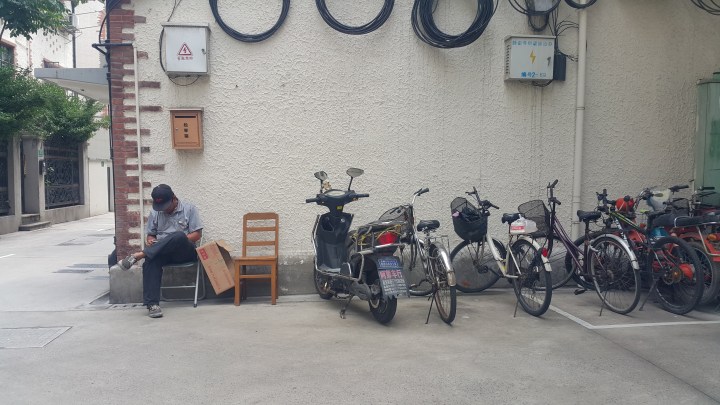
In China, economy dogged at decade’s end

In some ways, China rivals or even surpasses the most developed parts of the U.S., like the Chinese high speed rail network. The bullet train is clean, efficient and can take passengers from Shanghai to Beijing in 4.5 hours. However, a short drive from Shanghai’s financial center, there are still parts of China struggling to acquire the basics — things like a flushing toilet.
Here are the top three stories of what has and hasn’t changed in the country from Marketplace’s China desk:
Worker attitudes have changed
On average, China’s employees work 12 hours more per week than their U.S. counterparts, but this might not last and employers must adjust to attract workers.
Previous generations, mostly from the poor countryside, have migrated to the cities and been eager to work overtime on construction sites, in factories or as cleaners to save as much as they can to retire in their village.

You won’t hear the phrase “work-life” balance uttered by young people but workers from factories to high-tech giants tell Marketplace that they are willing to earn less if that means more personal time to rest, or play on their cell phones.
College students also tell Marketplace that they want fulfilling jobs that are not high-pressured.
Daily life in China has changed with the help of Chinese internet giants
Some innovative features from Chinese tech giants could show up in the U.S.
In Chinese cities like Shanghai, one can go cashless. Marketplace has encountered vegetable stall owners and even street buskers preferring mobile payment to cash. Yes, China’s internet is heavily censored but there are many Chinese equivalents with innovative features that are being copied by western tech giants. One can survive with apps from two Chinese firms: Alibaba (e-commerce sites Taobao, Tmall, mobile payment app Alipay) and Tencent (WeChat). There are complaints that these companies flourished because China’s government blocked foreign competitors.


The unpredictability of China’s government rules and regulations have not changed
U.S. and foreign businesses have long complained of being kept in the dark about unwritten rules while Chinese state-owned enterprises and local competitors get advanced notice.
However, some Chinese businesses in the private sector say they are also at the mercy of government rules, like people in the video gaming industry, or when the central leadership toughens its environmental clean-ups. Often, companies affected say they have little recourse. The stricter environmental rules are often cited as a reason manufacturers have moved out of China.

Thing to look out for in 2020
China has a self-imposed deadline to eradicate absolute poverty in 2020.
China aims to help people earn at least 4,000 yuan ($570) annually in 2020. According to government statistics, the number of poor people dropped from 99 million at the end of 2012 to 17 million at the end of 2018.
The Chinese government wants consumers to drive growth. However, housing prices, wedding costs and high medical costs continue to drive high savings and hampers consumer spending.
There’s a lot happening in the world. Through it all, Marketplace is here for you.
You rely on Marketplace to break down the world’s events and tell you how it affects you in a fact-based, approachable way. We rely on your financial support to keep making that possible.
Your donation today powers the independent journalism that you rely on. For just $5/month, you can help sustain Marketplace so we can keep reporting on the things that matter to you.












